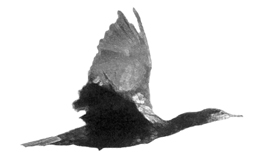The Last of the Lumbermen
Read The Last of the Lumbermen Online
Authors: Brian Fawcett


THE LAST
OF THE
LUMBERMEN
THE LAST
OF THE
LUMBERMEN
A NOVEL BY
BRIAN FAWCETT


Copyright © 2013 Brian Fawcett
This edition copyright © 2013 Cormorant Books Inc.
This is a first edition.
No part of this publication may be
reproduced, stored in a retrieval system or transmitted, in any form or by any means, without the prior written consent of the publisher or a licence from The Canadian Copyright Licensing Agency (Access Copyright). For an Access Copyright licence, visit
www.accesscopyright
. ca or call toll free 1.800.893.5777.



The publisher gratefully acknowledges the support of the Canada Council for the Arts and the Ontario Arts Council for its
publishing program. We
acknowledge the financial support of the Government of Canada through the Canada Book Fund (CBF) for ou
r publishing activities, and the Government of Ontario through the Ontario Media Development Corporation, an agency of the Ontario Ministry of Culture, and the Ontario Book Publishing Tax Credit P
rogram.
Library and Archives Canada Cataloguing in Publication
Fawcett, Brian, 1944â, author
The last of the lumberman / Brian Fawcett.
Issued in print and electronic formats.
ISBN 978-1-77086-287-6 (
pbk.). â ISBN 978-1-77086-289-0 (mobi).--
ISBN 978-1-77086-288-3 (epub)
1. Title.
PS8561.A94L38 2013 C813'.54 C2013-903666-0
C2013-903667-9
Cover art and design: Angel Guerra/Archetype
Interior text design: Tannice Goddard, Soul Oasis Networking
eBook development:
WildElement.ca
Printer: Friesens
Printed and bound in Canada.

The interior of this book is printed on 100% post-consumer waste recycled paper.
CORMORANT BOOKS INC.
10 ST. MARY STREET, SUITE 615, TORONTO, ONTARIO, M4Y 1P9
For Gord Smetanuk, Jack Larkin, Alex Ritson, Ken Silver
my boyhood hockey heroes
Love is to reason as the eyes are to the mind.
LOUIS ZUKOFSKY
,
On Shakespeare
, 1963, P. 266
Contents
PART ONE
ONE
L
ET ME TELL YOU
the story of my life.
First, I've got my head down. That
makes me pretty much like an awful lot
of people, so I'll be specific. I'm on a
sheet of ice in a cold arena full of
hockey fans and hockey players, and I've got my
back to the other players with the puck on my
stick just inside my own team's blueline, a step away from the boards.
I can hear
things I can't see. This time it's a young kid
a few rows into the stands above our bench.
He's yelling at me in a high, reedy voice
that's had the needle in me since the game began.
No, wait a sec. This kid has been on me
since the beginning of last season. Or maybe the beginning of time.
“Wake up
before it's too late, Bathgate,” he's screeching.
“There's a hockey game going on.”
For sure. I can also hear a
stick banging the ice behind my left shoulder.
That's going to be my winger, Gord. Last
time I saw him he was near centre, but
now he's come back to pick up the pass
from me. Without looking I flick the puck
between my legs along the blueline, a neat move that
will allow him to deal the puck to my other wingman, Jack, who will be cr
ossing centre ice.
Yeah, yeah. A blind pass in your own
zone is hockey's equivalent of picking your nose in public. A house league move. But
what's life without a little adventure? If the
move works, Jack has a breakaway if Gord
can make a pass as slick as mine. Or at
least
he will have until the Stingers run him down.
So, that's the plan. But
in the real world, Gord is cruising
toward centre like he ought to be, and
my brilliant pass lands on the stick of the Stingers'
right winger, who's too lazy to check Gor
d knowing how easily he can catch him. And when
the puck lands on his stick, he slips it to
the other Stinger winger, who's also screwing
around at our blueline. He skates unmolested into the
sweet part of the slot and rockets a shot
at â not accidentally â our goalie's head. On cue,
said goalie ducks, and the red light goes on behind him.
I'm not a witness to this, because the blind pass
isn't my only mistake. I haven't heard the thi
rd Stinger forward coming in behind me. Just
as I straighten up and begin to turn so I
can watch my handiwork, he jackhammers me into the boa
rds, and my stick jams against the bottom of
them so the butt skewers me right above my solar
plexus. A nanosecond later, my flimsy old Jofa helmet hits the glass, ha
rd.
When the lights come up again, they carry
a whole lot of soft pastels you're not supposed
to see in a hockey arena. I can't ge
t any air into my lungs, but damn, I hear
birds. Robins sweetly twittering away about how tasty the
worms are, but there's also a raven's
squawk echoing in the hollow distance of a very dark
forest. Then there's only the dark.
SO WHY IS THIS
the story
of my life? Well, first, that dark forest is
a place I'm very familiar with. Second? I'm a guy
who's seen a lot of plans that didn't work the way
they should have. Sometimes it's been ignorant armies and falling
trees; things got destroyed and money lost, and sometimes
people got hurt or worse. Sometimes I've been on the
business end, like now. Not that I'm complaining. It'
s how life is: a deep, looming thicket, and only temporary clearings.
Then there's hockey, which I've played since
I can remember. Hockey has rules and it's played
in the light. That makes it very different
from life, which has no rules, and which asks
you to spend all your energy and heart trying
to invent ones that work or trying to elude the stupid
ones other people are trying to plant on
you. Hockey has been my clearing in the dark for
est. It's preserved my sanity again and again, whatever
it's done to my body.
And so I push my way
through the darkness by sheer will and head for
the clearing, thrashing my way through the coloured lights
and the birdsong, and find myself where I'm
supposed to be: the brightly lit ice surface of the
Mantua Memorial Coliseum, Friday, January twenty-third, third period
of a game between the Mantua Mohawks and the Wilson Lake Stingers.
The first thing I hear? It's the boobird in the stands.
“Niiice play, Bathgate, you old fart.”
Better
him than my teammates, who must be thinking the same
thing.
Screw them all. It took me twenty-five years to
perfect plays like this one. When you're a pr
ematurely grey forty-something playing on a last-place team in
a nowhere league just south of the North Pole
some rules don't count. If my wingers had been playing
as creatively dumb as I was, and the other
team had been more cooperative, I would have looked
like Wayne Gretzky, who also specialized in doing
the unexpected. So he always knew where his wingers were. So what?
“So,” Go
rd wants to know as we skate back to the
bench. “What the hell was that all about?”
“I thought that was you calling for the
puck,” I say, opening the gate and letting him go first.
“Listen,” he answers. “
You know I don't call for a puck unless I
can do something with it.”
Gord is right. He isn't stupid, unless
you count playing hockey at his age. I sit down heavily beside him â and instantly feel the
darkness move in on me again. He
has to grab my sweater to keep me from going backward over the bench.
“Who
was that who nailed me? Was it that goddamned Bellado
kid?”
Gord doesn't have to answer. Roddy Bellado, the
Stingers' twenty-something centre, had been chasing me around
all night, and we both know I'd been lucky to elude
him as long as I did. “You going to
be ready for another shift anytime soon?” Gord asks.
As
a test, I straighten my spine. There's an odd
pain somewhere between my shoulder blades that tells me
tomorrow isn't going to be a barrel of fun.
But then tomorrow is something I've never given much
of a crap about. “Give me a sec here,”
I say. “Clear the cobwebs.”
To Gord's right, I
hear Jack guffaw. His standard line is
that once I get on a sheet of arena
ice, grey hair and cobwebs are the only g
rey matter I've got. I scowl, get to my feet,
and bang the tips of my skates against the bench gate.
“I'm okay,” I growl,
making a show I don't feel. “Let's play some hockey.”
That gets a laugh f
rom the whole bench.
I DON'T MISS ANOTHER
shift, but I might as
well not be out there. A cloud of fog seems
to be moving across the surface of the ice,
and the lights keep dimming. And as the last minutes
of the game wind down, the fog takes on the p
roperties of thick, black bunker oil.
We score another
goal, this one with Gord setting a pick on
a Stinger defenceman like parking a semi in front
of a Volkswagen. I have just enough of my
wits left to see it coming. I take the puck
into the corner and pass back to Bobby Bell, the
one defenceman we have who can read an o
ffensive play. He crosses the blueline behind
me and puts the puck away, high and stickside, where it
ought to go. As I come off the ice
I use my remaining brain cell to point my
stick at the kid up in the stands. I even
make a little circle with the tip.
Nothing is going
to impress this kid. “You're still dead
on your feet,” he screeches. It gets a laugh
from the crowd, but I can't see
the humour because I've gotten lost watching the way the
fog pattern I made with my stick dissipates.
The Stingers score again too,
but I'm not on the ice for it, and I
don't really care. By the time I stumble
onto the ice for my last shift, the sharp pain
between my shoulder blades is gone, replaced by a
numb feeling that has tentacles down into my fingertips
and up into my skull. There are black
cloudlets at the edges of whatever I focus on, and they seem to be on the move â¦
A thud
behind me brings me back. It's Bellado, the peckerhead,
trying to finish me, and the only reason he
doesn't succeed is that Gord has planted him halfway through the boards.
That's
what they tell me later, anyway. I don't
hear the final buzzer, and Gord has
to steer me off the ice. The only things
I recall after the game are the familiar
scent of Je Reviens, a halo of red hair
near my face, and fingers that don't seem to
be mine undoing my skates. After that, warm water coursing
over my shoulders and neck, snippets of conversation, some
flashes of very electric colour in the air,
and more fuzzy cloudlets. It's harder and har
der to keep them at bay, but I'm damned
if I'll let them win. I know what's waiting for me if they do. It isn't a hockey game.
I
don't recall leaving the Coliseum, don't remember the driv
e home, or hitting the sack. I do have a
glimmer out the window of a high-bed 4x4 as I
fall, and a world that has just one colour in it. That, at least, makes sense. It is snowing.